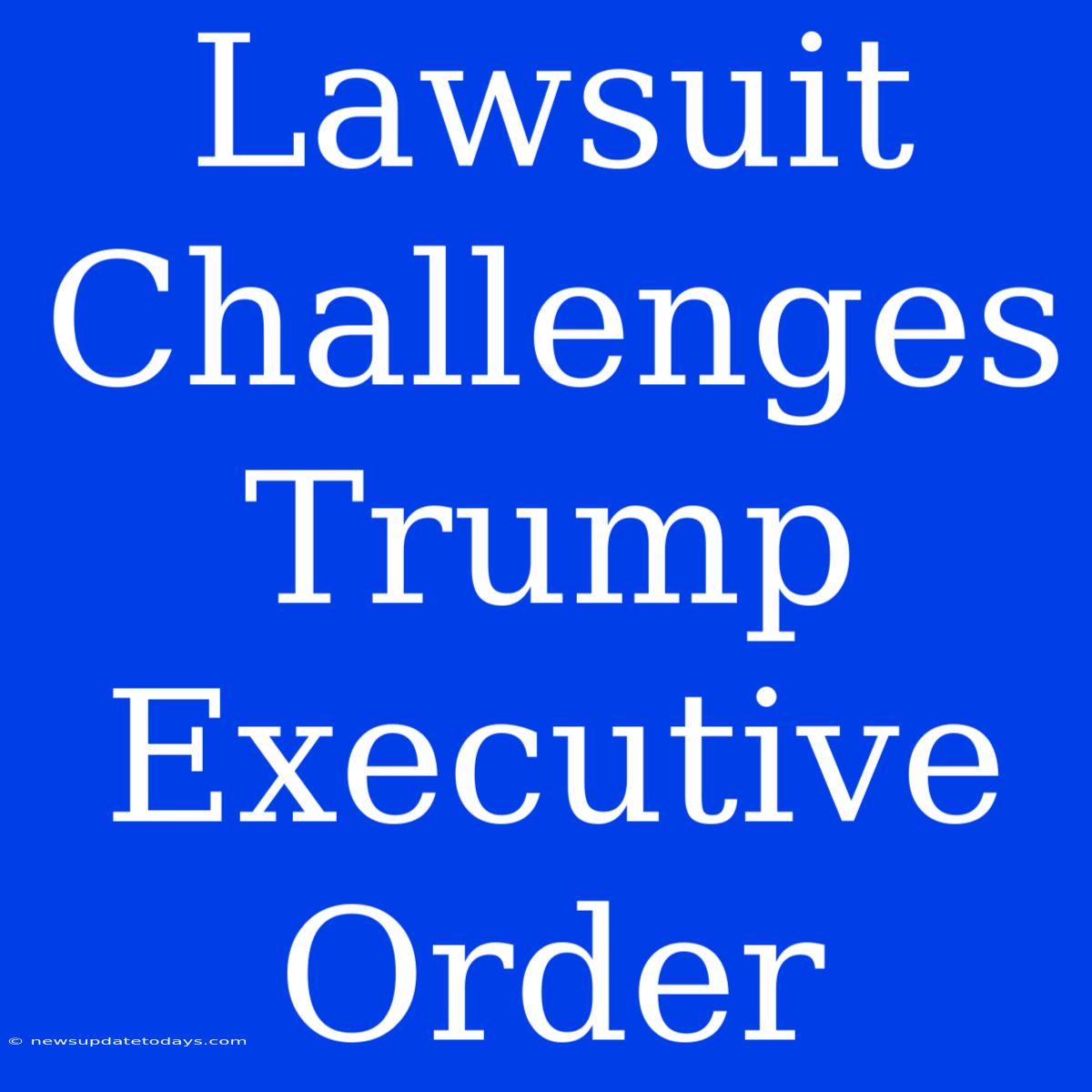Lawsuit Challenges Trump Executive Order: A Deep Dive into Legal Battles
The implementation of many executive orders issued during the Trump administration faced significant legal challenges, sparking intense debate and raising crucial constitutional questions. This article delves into the legal battles surrounding these orders, examining the arguments presented by both sides and analyzing the broader implications for executive power.
Understanding the Nature of Executive Orders
Executive orders are directives issued by the President of the United States that have the force of law. While they cannot override existing legislation, they can significantly impact how laws are implemented and interpreted. This inherent power, however, is not unlimited and is subject to judicial review. The Trump administration's frequent use of executive orders led to a surge in legal challenges, testing the boundaries of presidential authority.
Key Areas of Legal Contention
Several executive orders issued by the Trump administration faced widespread legal opposition. These challenges often centered around:
-
Immigration: Orders impacting immigration policies, such as travel bans and border security measures, were among the most heavily contested. Lawsuits argued that these orders violated constitutional rights, including due process and equal protection. The legal battles focused on the interpretation of the president's authority over immigration and the potential for discrimination.
-
Environmental Regulations: Executive orders aiming to roll back environmental regulations faced significant opposition from environmental groups and states. Lawsuits challenged the legality of these actions, arguing that they violated environmental laws and endangered public health. The core arguments often revolved around the extent of executive power to override existing environmental protections.
-
Healthcare: Executive orders impacting the Affordable Care Act (ACA) also faced legal challenges. The arguments centered on the president's ability to alter or dismantle a major piece of legislation through executive action.
Arguments from Both Sides
Challengers of the executive orders generally argued that they:
- Exceeded the President's Constitutional Authority: They claimed the orders overstepped the boundaries of presidential power, encroaching on the legislative authority of Congress or violating the rights of individuals and groups.
- Violated Specific Statutes: Some lawsuits argued that the orders directly contradicted existing federal laws.
- Were Arbitrary and Capricious: The challengers asserted that the orders were not based on sound reasoning or evidence, suggesting a lack of due process.
Conversely, the Trump administration often defended its executive orders by arguing that:
- They were within the President's Constitutional Powers: They asserted that the president has inherent authority to issue executive orders in areas of national security, immigration, and other matters of executive responsibility.
- They were necessary for the effective functioning of government: The administration justified its actions as necessary to achieve policy goals and protect national interests.
Outcomes and Long-Term Implications
The legal challenges to Trump's executive orders resulted in a mixed bag of outcomes. Some orders were fully or partially blocked by courts, while others survived legal challenges. These court decisions highlight the critical role of the judiciary in upholding the rule of law and checking the power of the executive branch. The long-term implications extend beyond individual cases, impacting the future use of executive orders and the balance of power within the U.S. government. The precedents set by these legal battles continue to influence how subsequent administrations approach the issuance and implementation of executive orders.
Conclusion
The legal battles surrounding Trump's executive orders provide a crucial case study in the ongoing tension between executive power and the checks and balances inherent in the U.S. system of government. The legal challenges revealed critical issues related to presidential authority, the separation of powers, and the protection of individual rights, leaving a lasting impact on American jurisprudence. Further research into specific cases and their rulings is crucial for a comprehensive understanding of these complex legal matters.

